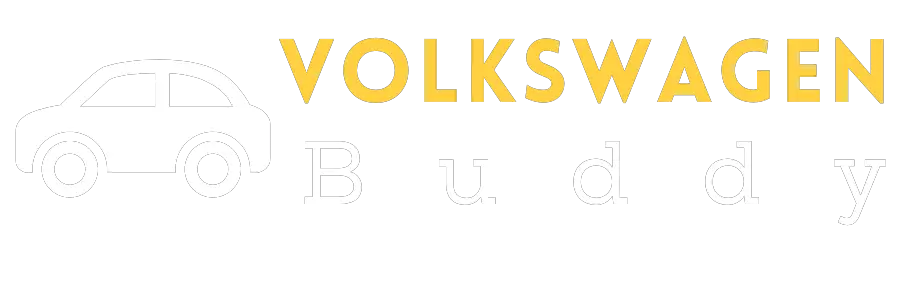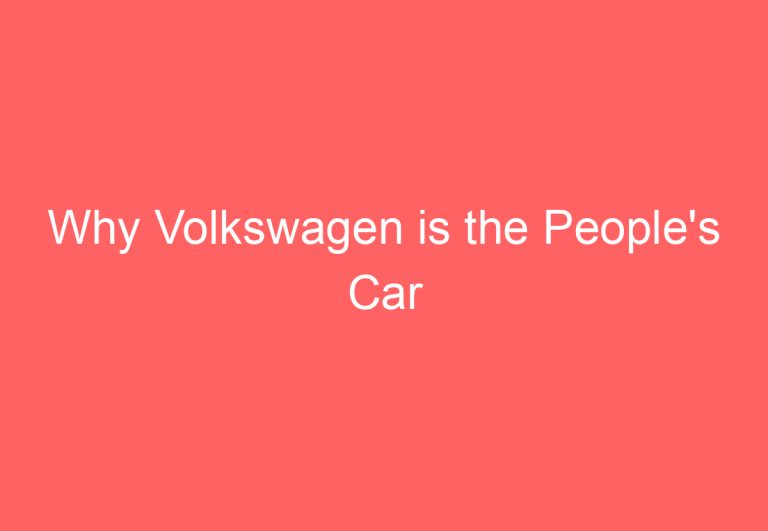3 Quick & Easy Ways to Turn Off Your Volkswagen Check Engine Light
As a Volkswagen technician, I’ve seen firsthand the frustration and inconvenience that the Check Engine Light can cause for Volkswagen owners. That’s why I created this troubleshooting guide.
This guide will walk you through the steps to diagnose and potentially resolve the issue, so you can get back on the road as quickly as possible.
I’ll start by explaining what the Check Engine Light means and why it comes on. Then, I’ll provide you with a step-by-step process for troubleshooting the issue. Finally, I’ll give you some tips on how to prevent the Check Engine Light from coming on in the future.
Why Volkswagen Check Engine Light Turn Off
Problems with the Engine
A misfire in one or more cylinders
A problem with the fuel injection system
A problem with the ignition system
A problem with the exhaust system
A problem with the engine sensors
Problems with the Transmission
A problem with the transmission fluid
A problem with the transmission gears
A problem with the transmission control unit
Problems with the Electrical System
A problem with the battery
A problem with the alternator
A problem with the wiring harness
A problem with the electronic control units
How to Troubleshoot: Volkswagen Check Engine Light Turn Off
The check engine light on your Volkswagen is a warning sign that there is a problem with your vehicle. It can be caused by a variety of issues, from a simple loose gas cap to a more serious engine problem. If your check engine light comes on, it is important to have it checked out as soon as possible to avoid further damage to your vehicle.
Troubleshooting the Check Engine Light
There are a few things you can do to troubleshoot the check engine light on your Volkswagen. First, you can try resetting the light by disconnecting the battery for a few minutes and then reconnecting it. If the light comes back on, you will need to take your vehicle to a qualified mechanic to have the problem diagnosed.
When you take your vehicle to the mechanic, they will be able to use a diagnostic tool to scan the computer for any codes that are stored. These codes will help them identify the problem and determine the best course of action.
Common Causes of the Check Engine Light
There are a number of common causes of the check engine light, including:
A loose gas cap
A faulty oxygen sensor
A bad spark plug
A dirty mass air flow sensor
A faulty catalytic converter
A misfiring engine
A problem with the fuel injection system
How to Prevent the Check Engine Light from Coming On
There are a few things you can do to help prevent the check engine light from coming on, including:
Keep your gas cap tightly closed
Change your oil and oil filter regularly
Inspect your spark plugs and replace them as needed
Clean your mass air flow sensor
Have your catalytic converter checked regularly
Tune up your engine regularly
By following these tips, you can help keep your Volkswagen running smoothly and avoid costly repairs.
Conclusion
The check engine light on your Volkswagen is a valuable tool that can help you identify potential problems with your vehicle. If your check engine light comes on, it is important to have it checked out as soon as possible to avoid further damage to your vehicle.
FAQs: Volkswagen Check Engine Light
What does the check engine light mean on my Volkswagen?
The check engine light is a warning light that indicates that there is a problem with your vehicle’s engine. The light may be accompanied by a number of other symptoms, such as a loss of power, a burning smell, or a strange noise. If you see the check engine light, it is important to have your vehicle checked by a qualified mechanic as soon as possible.
How do I turn off the check engine light on my Volkswagen?
There is no surefire way to turn off the check engine light on your Volkswagen. However, there are a few things you can try. First, try disconnecting the battery for a few minutes and then reconnecting it. This may reset the computer and turn off the light. If that doesn’t work, you can try clearing the codes with a diagnostic tool. Finally, if all else fails, you may need to have the problem diagnosed and repaired by a qualified mechanic.
What are some common causes of the check engine light on a Volkswagen?
There are many different things that can cause the check engine light to come on on a Volkswagen. Some of the most common causes include:
A faulty oxygen sensor
A bad catalytic converter
A misfire
A dirty mass air flow sensor
A leaking fuel injector
A problem with the fuel pump
A problem with the transmission
What should I do if the check engine light is on?
If the check engine light is on, it is important to have your vehicle checked by a qualified mechanic as soon as possible. The light may be indicating a serious problem that could lead to damage to your vehicle if it is not repaired.
How much does it cost to fix the check engine light on a Volkswagen?
The cost of fixing the check engine light on a Volkswagen can vary depending on the cause of the problem. A simple problem, such as a dirty mass air flow sensor, may only cost a few hundred dollars to fix. However, a more serious problem, such as a bad catalytic converter, could cost several thousand dollars to repair.
Also Read: Volkswagen Golf Headlights Wont Turn Off

![Apple Carplay Volkswagen Not Working [Easy Fixes!]](https://volkswagenbuddy.com/wp-content/uploads/2024/05/apple-carplay-volkswagen-not-working-easy-fixes_3893-768x531.jpg)
![Volkswagen Jetta Windshield Wipers Not Working [How To Fix It Instantly]](https://volkswagenbuddy.com/wp-content/uploads/2024/05/volkswagen-jetta-windshield-wipers-not-working-how-to-fix-it-instantly_3882-768x531.jpg)
![How To Get A Volkswagen Tire Off [A Quick Fix]](https://volkswagenbuddy.com/wp-content/uploads/2024/05/how-to-get-a-volkswagen-tire-off-a-quick-fix_4547-768x531.jpg)


